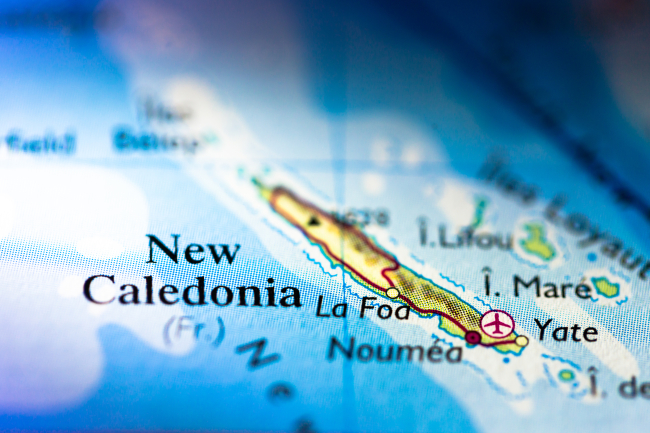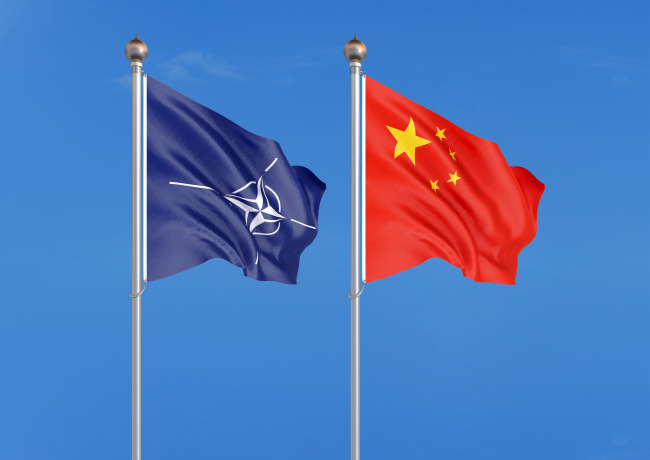France’s maritime security cooperation in the Pacific
France plays a significant role in Pacific maritime security, particularly through the active participation of its overseas territories and the contribution of its stationed armed forces to regional cooperation initiatives.
Japan’s Enhanced Security Engagement With the Pacific Islands
The expansion of security and defense cooperation stands as the most spectacular change in Japan’s contribution to the region in recent years.

France as a convening power in the Pacific: The Nouméa SPDMM
A little known regional dialogue offers France and other countries a chance to contribute to the “Pacific way”.


How Rwanda Became Africa’s Policeman
From Benin to Mozambique, President Paul Kagame is flexing his small country’s military muscle—and transforming the continent’s security landscape.
The historical heritage of AUKUS: Australia-United States-United Kingdom relations since 1900
The signing of the AUKUS partnership agreement between Australia, the United States and the United Kingdom in September 2021 seems to have reconstituted a natural coalition between “Anglo-Saxon” states. This solidarity generates contradictory judgments.
The State of Franco-German Relations and European Foreign Policy
The Franco-German relationship is more important than ever in order to deal with international crises and to develop a common European Foreign and Security Policy.
Why Should NATO Care About China? A Japanese Perspective
When we look back and think about some of the decisive moments in the West’s attitude towards China, it is rather symbolic that all goes back to Tiananmen Square, 1989.
A New Japan-France Strategic Partnership: A View from Paris
On the occasion of the conference held on the 22 November 2018 marking the 160th anniversary of Franco-Japanese diplomatic relations, Ifri publishes two parallel articles offering French and Japanese perspectives on the bilateral security partnership. Michito Tsuruoka's analysis of Japan's point of view is available here.
A New Japan-France Strategic Partnership: A View from Tokyo
On the occasion of the conference held on the 22 November 2018 marking the 160th anniversary of Franco-Japanese diplomatic relations, Ifri publishes two parallel articles offering French and Japanese perspectives on the bilateral security partnership. Céline Pajon’s analysis of French point of view is available here.
NATO Partnerships: Shaking Hands or Shaking the System?
The new Strategic Concept takes stock of the past ten years but outlines only modest objectives for the future of NATO. Partnership falls under the third core task, cooperative security. A subsequent partnership policy was unveiled, but has provided little new impetus.
Japan’s Enhanced Security Engagement With the Pacific Islands
The expansion of security and defense cooperation stands as the most spectacular change in Japan’s contribution to the region in recent years.

France as a convening power in the Pacific: The Nouméa SPDMM
A little known regional dialogue offers France and other countries a chance to contribute to the “Pacific way”.
Why Should NATO Care About China? A Japanese Perspective
When we look back and think about some of the decisive moments in the West’s attitude towards China, it is rather symbolic that all goes back to Tiananmen Square, 1989.
A New Japan-France Strategic Partnership: A View from Paris
On the occasion of the conference held on the 22 November 2018 marking the 160th anniversary of Franco-Japanese diplomatic relations, Ifri publishes two parallel articles offering French and Japanese perspectives on the bilateral security partnership. Michito Tsuruoka's analysis of Japan's point of view is available here.
A New Japan-France Strategic Partnership: A View from Tokyo
On the occasion of the conference held on the 22 November 2018 marking the 160th anniversary of Franco-Japanese diplomatic relations, Ifri publishes two parallel articles offering French and Japanese perspectives on the bilateral security partnership. Céline Pajon’s analysis of French point of view is available here.
NATO Partnerships: Shaking Hands or Shaking the System?
The new Strategic Concept takes stock of the past ten years but outlines only modest objectives for the future of NATO. Partnership falls under the third core task, cooperative security. A subsequent partnership policy was unveiled, but has provided little new impetus.


How Rwanda Became Africa’s Policeman
From Benin to Mozambique, President Paul Kagame is flexing his small country’s military muscle—and transforming the continent’s security landscape.
The State of Franco-German Relations and European Foreign Policy
The Franco-German relationship is more important than ever in order to deal with international crises and to develop a common European Foreign and Security Policy.
Support independent French research
Ifri, a foundation recognized as being of public utility, relies largely on private donors – companies and individuals – to guarantee its sustainability and intellectual independence. Through their funding, donors help maintain the Institute's position among the world's leading think tanks. By benefiting from an internationally recognized network and expertise, donors refine their understanding of geopolitical risk and its consequences on global politics and the economy. In 2024, Ifri will support more than 70 French and foreign companies and organizations.









